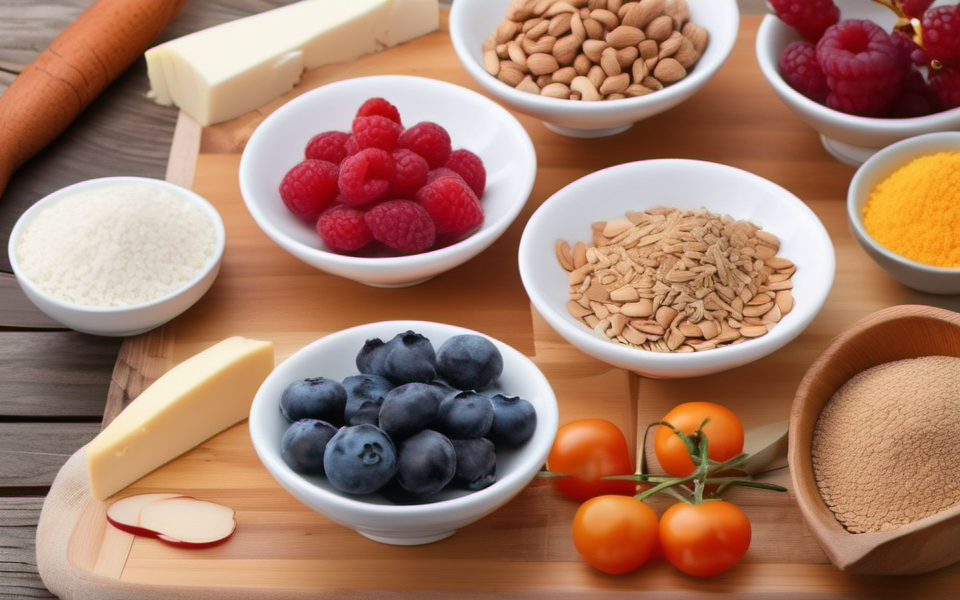Inflammation is a natural part of the body’s healing process, but chronic inflammation can lead to serious health problems. You might be surprised to learn that many everyday foods contribute to this silent inflammation. Today, we’re diving deep into the food culprits that experts recommend cutting to help reduce inflammation and boost your overall health. Get ready to swap out these inflammatory offenders for better choices that will leave your body feeling its best.
Inflammation: A Silent Saboteur of Your Health
Inflammation is a complex process involving your immune system, and while it’s essential for healing wounds and fighting infections, chronic inflammation can wreak havoc on your body. Think of it as a silent fire that smolders, leading to various issues over time.
Here are some of the sneaky ways chronic inflammation can impact your health:
- Increased risk of heart disease: Inflammation can damage blood vessels, contributing to heart disease.
- Autoimmune disorders: Inflammation plays a key role in the development of autoimmune diseases, like rheumatoid arthritis.
- Neurological disorders: Chronic inflammation has been linked to neurodegenerative diseases like Alzheimer’s.
- Digestive issues: Inflammation in the gut can lead to problems like IBS, Crohn’s disease, and ulcerative colitis.
- Joint pain: Inflammation in the joints is a hallmark of arthritis, causing pain, stiffness, and reduced mobility.
- Skin problems: Inflammation can manifest as skin conditions like acne, eczema, and psoriasis.
The Top 7 Inflammatory Foods to Avoid:
Now, let’s take aim at the culinary culprits contributing to chronic inflammation. Here are seven common foods that experts recommend cutting back on or eliminating entirely from your diet:
1. Processed Foods:
These highly processed, convenient options are often packed with unhealthy fats, sugar, and artificial ingredients. Think of them as inflammation accelerators! Highly processed foods contribute to chronic inflammation by overloading your body with chemicals, refined sugars, and unhealthy fats. They trigger an inflammatory response that can contribute to a range of health issues. Processed meats, refined grains, and sugary drinks are notorious culprits to limit.
2. Added Sugars:
While our bodies need sugar for energy, the abundance of added sugars in processed foods, beverages, and even some seemingly healthy products can trigger chronic inflammation. Added sugars overload your body, create a spike in insulin, and lead to an inflammatory cascade that negatively affects your overall health. Beware of hidden sugars in processed foods, even those disguised as healthy.
3. Refined Grains:
White bread, white rice, pasta, and other refined grains have been stripped of their fiber and essential nutrients. While they provide a quick burst of energy, they can spike blood sugar levels and contribute to inflammation. They also lack the essential nutrients found in whole grains, which are beneficial for digestion and overall health. Opt for whole grains like brown rice, quinoa, and whole wheat bread to nourish your body and avoid unwanted inflammation.
4. Saturated and Trans Fats:
These unhealthy fats, often found in fried foods, fast food, and processed snacks, contribute significantly to chronic inflammation. They can contribute to heart disease, obesity, and other chronic diseases. Choose lean meats, fish, nuts, seeds, and avocados for healthier fat sources. Swap deep-frying for baking, grilling, or roasting to reduce exposure to unhealthy fats.
5. Dairy:
For some individuals, dairy products can trigger inflammation, particularly those with lactose intolerance or sensitivities. Dairy can be a tricky food. While it can be a source of protein and calcium for many, others experience digestive issues, bloating, and inflammation due to dairy’s protein and fat content. If you suspect dairy is a culprit, consider removing it for a few weeks to observe any changes in your body.
6. Alcohol:
Excess alcohol consumption is a significant trigger for inflammation in the body. Alcohol can stress your liver, increase oxidative stress, and compromise your immune system, all contributing to chronic inflammation. Moderate your alcohol consumption to keep inflammation at bay. If you choose to consume alcohol, do so in moderation and within recommended guidelines.
7. Artificial Sweeteners:
While touted as sugar substitutes, artificial sweeteners can negatively impact your gut microbiome and increase inflammation. They often lead to gut dysbiosis, which can negatively affect your overall health, immunity, and even your mood. Explore natural sweeteners like honey, maple syrup, and stevia in moderation.
Making Smarter Food Choices for a Healthier You
By embracing these changes, you can reduce inflammation, promote healing, and support your body’s natural defenses against chronic diseases. Choose fresh, whole foods, and be mindful of added sugars and processed ingredients. Listen to your body’s cues, and make gradual changes to find the diet that works best for your health and wellness. Remember, healthy eating is not a quick fix but a lifestyle choice that supports your well-being.









